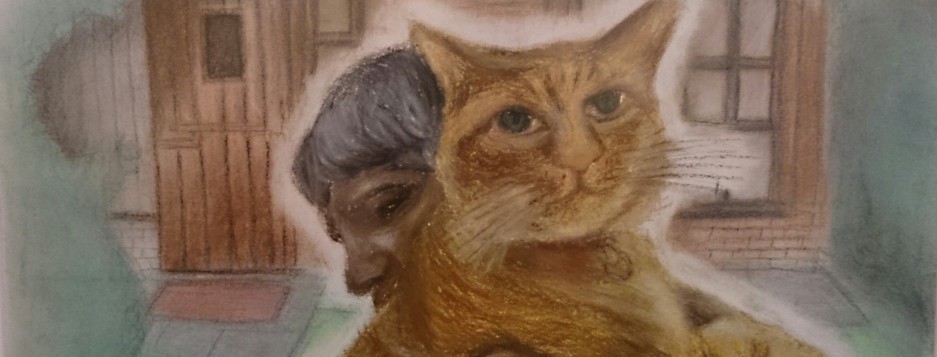The following note was provided to the NUJ’s Black Member’s Council at the request of its chairperson. There has been no response.
October 18, 2009 5:48 PM
Subject: Black Members Council
There has been much debate about why black journalists continue to be under-represented in the media. Bodies like the Black Members Council of the NUJ are attempting to highlight and address the problem. Employers like the BBC admit this is a serious issue and say they are committed to encouraging the development of black talent. These are all hopeful signs.
None of this will mean anything if the only black journalists acceptable to the industry are those who unquestioningly promote a news agenda that patronizes and stereotypes ethnic communities. Advancing the mediocre and pliable is a management prerogative. Maintaining a culture that undermines the confidence of promising young black journalists and discourages imaginative and critical thinking is another story. This directly advances a racist and colonial agenda, and reinforces the myth of black inferiority. When such a project requires the marginalization or removal of experienced and independent black journalists it must of course be resisted, not least because the same tactic will increasingly be used against good white journalists.
The BBC’s Asian Network provides an illustrative case-study. Four years ago the Network embarked on a major process of transformation. This undertaking was prompted by Tim Gardam’s report which identified a substantial lack of editorial ambition at the Network. A new tier of management was introduced, key appointments made and schedules and program formats changed.
The Network became a more populist platform intensely driven by market research. It now compares favourably with the ‘extras’ developed by white newspapers under apartheid in South Africa. Their purpose was to divert and ghettoize black readers while at the same time reflecting the community it reported from an entrenched colonial perspective.
The result has been programs which are superficially slicker but now represent only a limited range of acceptable voices. It is strenuously implied by the output that the most intense concerns of Asian listeners are about religion and ritual as they relate to issues like halal food, the wearing of religious symbols and dress and of course arranged marriage.
There is a constant recycling and re-packaging of parochial stories to give the impression that the overwhelming Asian problem is coming to terms with modern and secular Britain. Meanwhile market research is used to justify blanket coverage of celebrities, popular mainstream television programs and the ‘personalities’ they throw-up – to the exclusion of guests with genuinely interesting things to say.
Bollywood outranks all else on the Network. This interest in the Indian film industry is understandable. But the money spent on lauding Bollywood and making it a ubiquitous presence on the Network is only explicable as a form of identity politics. Most Bollywood products are actually rubbish.
Extraordinary attention is paid to trivial Muslim stories. This helps camouflage the fact that there is an official narrative about Muslim extremism and the war on terror which cannot be challenged. There is no need to explain the utter irresponsibility of such censorship and its implications for the black community.
And so in the name of greater editorial ambition and enhanced journalism we have a propaganda outlet that will not serve the interests of black journalism. It will provide jobs for pseudo-journalists and mainstream hacks with narrowing options. Young white reporters seeking entry into the wider BBC will find a stint on the Network incredibly useful while their black counterparts will be stuck there learning little real journalism.
Much of this has been achieved by co-option and some management appointments are clearly unjustified. The complementary strategy is the threat of victimization. There are good journalists on the Network who have been given an absolutely rough ride. The result is a fearful newsroom where you can be accused of being a radical for reading The Independent.
I was a member of the management team before the transformation. I was not interviewed for my post when it was upgraded to Assistant Editor. Some sixty interviews I produced were excised from our website. The contributors included people like Noam Chomsky, the writer Arundhati Roy, Shami Chakrabati of Liberty, Irene Khan of Amnesty and the historian Mark Curtis.
A decision was made to spike a documentary I made about the discrepancies and contradictions in the official 9/11 story – even before the documentary was completed or reviewed. A documentary about farmer suicides in the Punjab did not make it onto our website after being broadcast. It criticized the role Hilary Benn our then Secretary of State for International Development had played in development projects.
Threats of redundancy and encouragement to leave the Network were followed by a systematic strategy of marginalization, bullying and personal humiliation. Attempts were made to re-interview me for my post under the guise of writing-up an appraisal. In April last year formal capability proceedings were brought. I lodged a grievance which was dismissed and an appeal which got the same result. Further capability proceedings, which are ongoing, were brought in May this year.
The allegations made border on the farcical. Many are simply lies which are easily disproved. The most disturbing feature however is that these proceedings are conducted in clear procedural breach of the agreed union agreements. Management is in effect trying to re-interview and dismiss journalists it dislikes under the cover of conducting capability proceedings. To that end it simply ignores the agreements or interprets its clauses to the point of absurdity.
This occurs at a time when there is growing recognition of what is being called the ‘Mainstream Media Emergency’ – the realization that people must turn to alternative sources for information, and develop ‘citizen journalists’ if we are to have any hope of understanding what is going on. For black communities, not withstanding the election of a black president in America, the situation is even more urgent.

One thought on “Note to Black Members Council 18-10-2009”